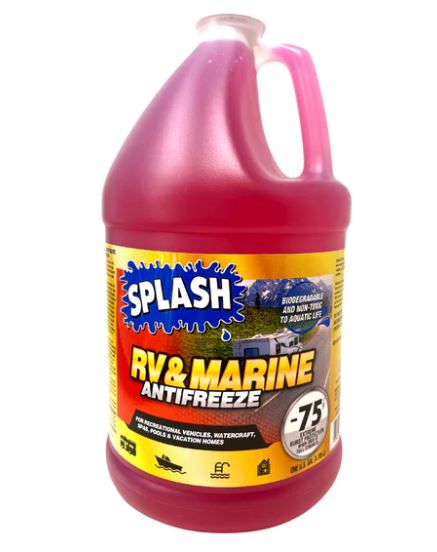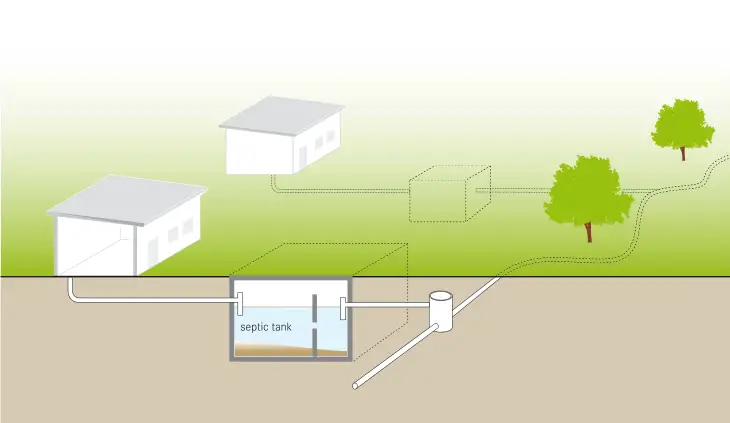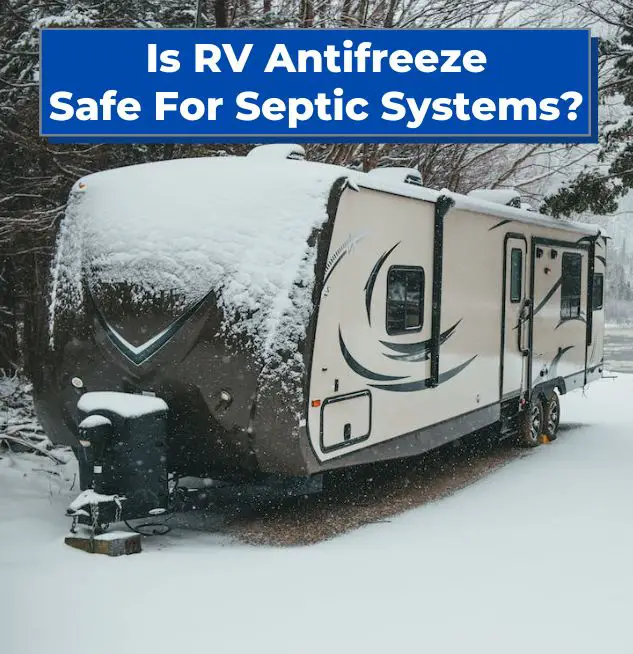RV antifreeze is a common product used by RV owners to winterize their vehicles. Many people wonder: is RV antifreeze safe for septic systems? Yes, RV antifreeze is safe to use with septic systems when done properly.
It is important to note that not all antifreeze is safe for septic systems. Automotive antifreeze, which is made of ethylene glycol, cannot be put in septic systems as it is very poisonous. On the other hand, RV antifreeze is non-toxic and usually made of propylene glycol, making it safe for septic systems.
Disposing of RV antifreeze in septic systems is a common practice, but it is essential to do it properly. Dumping a few gallons from the RV lines and holding tanks should be adequately diluted in the septic system.
Understanding RV Antifreeze

What is RV Antifreeze?
RV antifreeze is a non-toxic fluid that is used to protect the plumbing system of an RV from freezing during the winter months. It is different from regular automotive antifreeze, which is toxic and should not be used in an RV’s plumbing system. RV antifreeze is typically made of propylene glycol, which is safe for septic systems.
How Does RV Antifreeze Work?
RV antifreeze works by lowering the freezing point of water in the plumbing system. It does not actually prevent the water from freezing, but rather it prevents the water from expanding and causing damage to the pipes. RV antifreeze is poured into the plumbing system during winterization and then circulated through the system to ensure that all of the pipes are protected.
Septic System Basics
What is a Septic System, and How Does It Work?
A septic system is a type of wastewater treatment system commonly used in rural areas or homes that are not connected to a municipal sewer system. It consists of a septic tank and a drain field. The septic tank is a large, watertight container that is buried underground and receives all the wastewater from the house. The tank separates the solid waste from the liquid waste. The solid waste settles to the bottom of the tank and forms sludge, while the liquid waste (effluent) floats to the top. The effluent then flows out of the tank and into the drain field, where it is further treated by the soil.
How Does a Septic System Work?
When wastewater enters the septic tank, it is held there for a period of time to allow the solids to settle and the liquid to separate. The effluent then flows out of the tank and into the drain field, where it is distributed evenly through a series of perforated pipes. The effluent then percolates through the soil, which acts as a natural filter, removing harmful bacteria, viruses, and other contaminants.
The soil also helps to break down any remaining organic matter in the effluent. Septic systems require regular maintenance to function properly. The tank must be pumped out periodically to remove the accumulated sludge and prevent it from overflowing into the drain field.
Is RV Antifreeze Safe for Septic Systems?

Many RVers wonder whether RV antifreeze is safe for septic systems. While it is a common solution used to winterize RVs, it is important to use the right kind of antifreeze and use it sparingly to avoid any trouble with your septic system or sewer system when you drain it.
Factors to Consider
When it comes to determining whether RV antifreeze is safe for septic systems, there are a few factors to consider. First, you have to use the right kind of antifreeze. RV antifreeze is non-toxic and typically made of propylene glycol, which is safe to put in your septic system, while automotive antifreeze, which is made of ethylene glycol, cannot be put in septic systems as it is very poisonous.
Second, it is crucial to use the antifreeze sparingly. While RV antifreeze is non-toxic, adding too much of it to your septic system can kill off the necessary bacteria in the system, leading to costly repairs.
Types of RV Antifreeze
There are two types of RV antifreeze: alcohol-based and propylene glycol-based. Alcohol-based antifreeze is cheaper but can be harmful to the environment and is not recommended for use in septic systems. Propylene glycol-based antifreeze, on the other hand, is more expensive but is non-toxic and safe to put in your septic system.
Wrapping Things Up
After conducting research on the safety of RV antifreeze for septic systems, it’s clear that RV antifreeze is safe to use if used properly and in small amounts. Never use automotive antifreeze in septic systems as it is toxic and harmful to the environment.
RV antifreeze is non-toxic and safe for consumption when diluted with the amount of water in the RV system. It uses a basic chemical that won’t corrode your septic system or harm your tank or toilet.
Overall, it is important to use RV antifreeze properly and dispose of it correctly to ensure the safety of your septic system and the environment.
Check out our other helpful RV repair and troubleshooting guides while you’re here:

